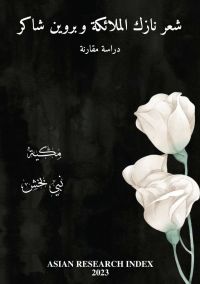گرامیؔ، غلام قادر، شیخ
حضرت گرامیؔ
ہندوستان کے کہنہ مشق اور فارسی کے مسلم الثبوت شاعر حضرت گرامی نے ۲۶؍ مئی ۱۹۲۷ء کو چند روزہ علالت کے بعد اس دنیائے فانی کو الوداع کہا، مرحوم پنجاب کے ضلع جالندھر کے رہنے والے تھے، فارسی شاعری سے ان کو فطری لگاؤ تھا، کچھ دنوں امرتسر کے ایک اسلامی مدرسہ میں معلم رہے، پھر اعلیٰ حضرت نظام سابق مرحوم کی قدر شناس نگاہ نے ان کو تاکا اور اپنے دربار کا فارسی شاعر مقرر کیا، اخیر عمر میں حیدرآباد سے جالندھر آکر جب قیام کیا تو ان کی صحبت اور فیض اثر سے متعدد نوجوان اردو شاعر پیدا ہوئے، جن میں ابولاثر حفیظؔ اور سالکؔ کے نام سب سے اونچے ہیں، ڈاکٹر اقبال نے بھی جب سے فارسی میں کہنا شروع کیا، ان سے استفادہ میں دریغ نہیں کیا، زبان کے معاملہ میں وہ ان کی سند تھے، افسوس ہے کہ اب کشورِ ہند ایسے یگانہ نامور کے وجود سے خالی ہوگیا۔
مرحوم سے صرف ایک دفعہ آل انڈیا شعراء کانفرنس دہلی منعقدہ ۱۹۲۳ء میں ملاقات ہوئی تھی، بے حد ملنسار، متواضع اور مرنجان آدمی تھے، ایک سال پہلے تک ان کے اکثر خطوط میری عزت بڑھاتے رہتے تھے اور کبھی کبھی معارف کے صفحوں کو بھی اپنے نغموں سے معمور کیا کرتے تھے، مولانا شبلی مرحوم کے تعلق اور ان سے حیدرآباد کی یک جائی اور شاعری کی ہم پیشگی کا اثر یہ تھا کہ وہ مولانا مرحوم کی اس یادگار کو بزرگانہ محبت کی نگاہوں سے دیکھا کرتے تھے، افسوس کہ یہ فیض اب ہمیشہ کے لئے بند ہوگیا۔
(سید سليمان ندوی، جون ۱۹۲۷ء
Adultery, immorality and sexual misconduct is a major crime, which has been condemned in all previous legislations sent by Allah, ancient nations, the bedouin tribes and in Islamic law. The religion of Islam not only forbids adultery, rather it prohibits going even near the causes leading to it. From medicinal point of view, adultery may cause AIDS, herpes etc. The word “zina” means to have sexual relationship without a marriage contract. Its synonyms in Arabic are: al bigha, al safah, al anat, and al fahisha. Islam imposes punishment on unmarried people committing adultery. According to Imam al shaf’i, the punishment is one hundred lashes for both man and the woman, and exile for one year. Whereas Imam Abu Hanifa only imposes one hundred lashes. For a married adulterer, the punishment is hundred lashes and death by stoning. Rest of the jurists unanimously agree that they will only be stoned to death. Majority of the scholars agree that if a concubine commits adultery, she will be giving fifty lashes. According to Saeed bin Musayyib, she will be beaten in order to teach her decent manners. In order to impose the punishment of zina on someone, it will be ensured that the adulterer is an adult, the woman should not be from a country who is at war with the Muslims, she is alive and the adultery has taken place in a Muslim country. Among the the repulsive results of adultery are spread of sexually transmitted diseases, increase in number of illegitimate children, lesser percentage of legitimate children and increase in crimes. One of the factors pointing towards the prohibition of zina is that it has been forbidden since early Islam and a severe punishment has been imposed on it. Of the vices of zina is the mixing up of lineages. Our society today is flooded with immoral behaviour, which is endangering our “iman” and “yaqeen” and is driving our society towards destruction. This wave of immorality has reached the elite of the society and it is obligatory upon every individual to put his share in stopping it.
Asking questions is central to intellectual effort. The questions which one asks play a significant role in bridging the gap between the known and unknown. Teachers in Pakistan use questioning as a major strategy to teach science in the primary classroom. However, most of these questions check the memory of their students, keep them on task, or check the instructions the teachers have given usually for class work or homework. Science teachers are the sole owners of questions and therefore students in Pakistani science classrooms have been positioned as the people who answer questions which have been posed by the teacher. The growing dominance of active learning environments in the developed world has done much to challenge this positioning but in our context, still, there remains an immensely strong institutional presumption that being a successful student is tested by the capacity to answer questions. This study was conducted to try out different strategies a teacher can use in a primary science classroom to promote students' questioning skills. The study revealed that a variety of 'hands-on, minds- on' activities with an appropriate level of difficulty can help to promote students' questioning skills. A gradual increase in the level of difficulty of stimulating activities, a friendly environment and acceptance of students' ideas helped them to overcome their fear of 'being wrong' and instead nurtured their innate curiosity. This resulted in the students' ability to create their own learning strategies which were all used as part of the science lesson. Several challenges to this approach in the learning of science were identified. They include completion of syllabus, time allocated for science lessons, product oriented assessment, school culture, individual accountability in the classroom and creativity on the part of teacher. Growing evidence from existing literature and my study seem to suggest that, primary science teachers in Pakistan need to review their role in the teaching/learning process. Any attempt to change the educational policy regarding the teaching of science would be useless if the implementers (teachers) of the policy do not realise their changing role. They are on the cutting edge and responsible for promoting students' curiosity, to help students to be autonomous learners.



